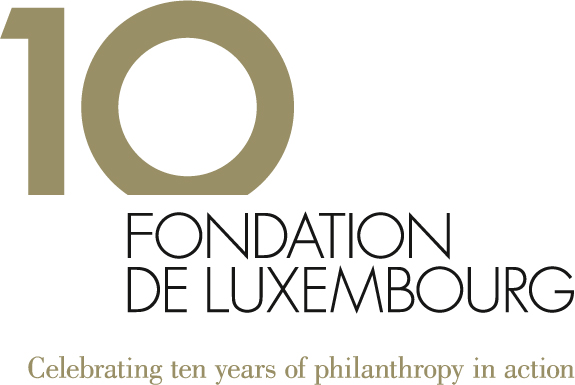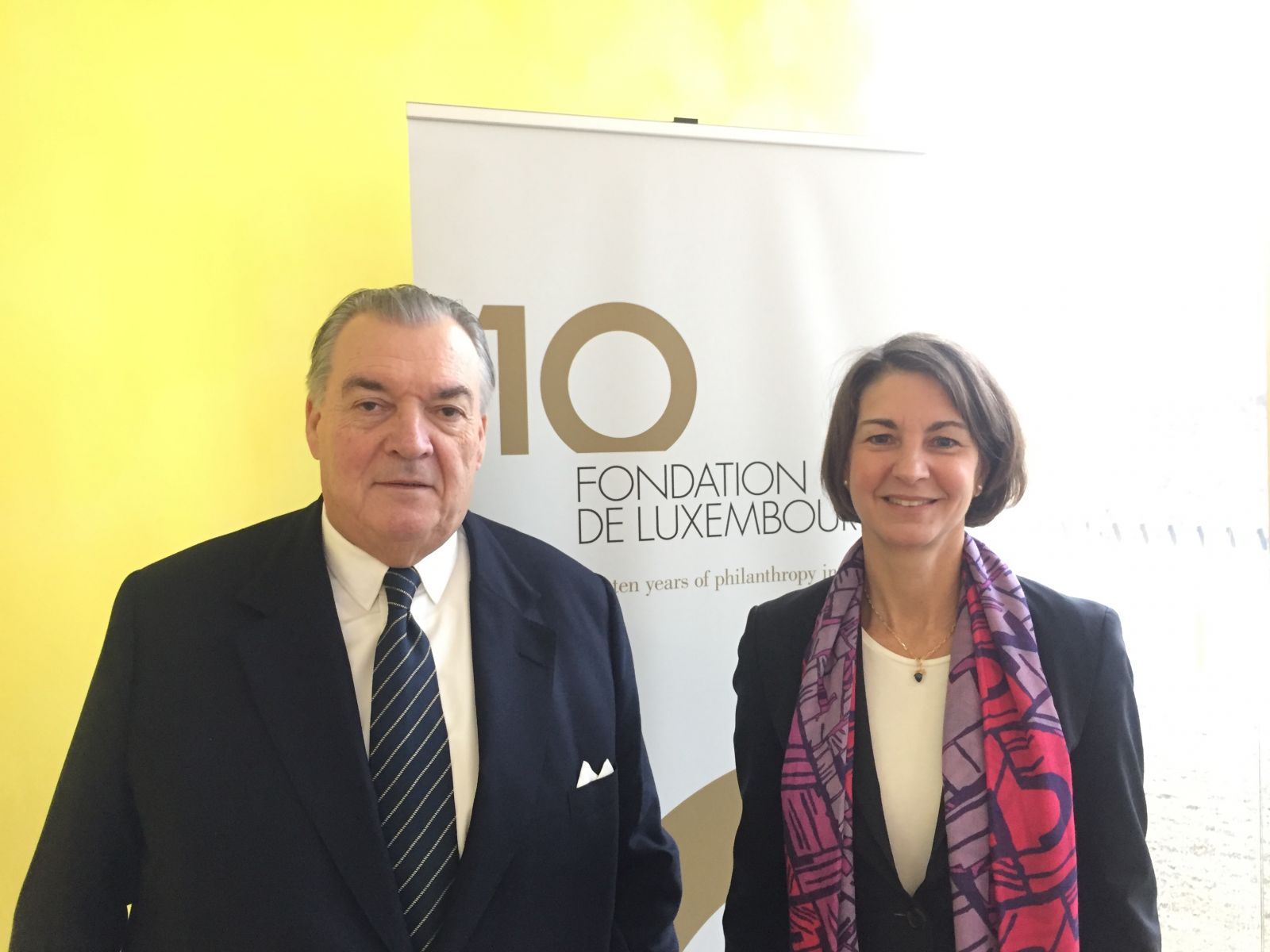Press Release - Fondation de Luxembourg celebrates 10 years of philanthropy “made in Luxembourg”
-
Themes
-
Focus area
Philanthropy -
Region
Luxembourg, Europe -
Parent foundation
Henri Grethen, President of Fondation de Luxembourg and Tonika Hirdman, Director General
. 80 sheltered foundations created under the aegis of the Fondation de Luxembourg
. Assets of nearly €200 million held for general interest causes
. €35 million distributed to several hundred projects of general interest in Luxembourg and around the world
On January 22nd, the Fondation de Luxembourg hosted a special gathering to celebrate its tenth anniversary. The Fondation de Luxembourg was established at the end of 2008 on the initiative of former Prime Minister Jean-Claude Juncker. The Fondation de Luxembourg has the primary aim of promoting and facilitating philanthropic commitment in Luxembourg. Its model of umbrella foundation is designed to encourage philanthropic commitment within the Grand Duchy while making the country more attractive to European donors wishing to act within a stable, transparent framework.
Ten years later, and it is now time to take stock. The Fondation de Luxembourg was initially funded by the Œuvre Nationale de Secours Grande-Duchesse Charlotte and the Luxembourg government with an endowment of €5 million, and has since managed to raise almost €200 million in commitments dedicatedto projects of general interest. With 80 foundations created under its aegis, half of which have been launched by Luxembourg residents, it has proved its worth and the relevance of its model by offering a stable, professional framework for the philanthropic commitment of both private individuals and companies. A total of more than €35 million has already been distributed to projects of general interest.
The President of the Fondation de Luxembourg, Henri Grethen, feels gratified by the success: “Few people would have imagined that in ten years the Fondation de Luxembourg would have succeeded in bringing together and gaining the support of so many donors and philanthropic parties.Its success is proof positive of the generosity of those who have decided to create foundations. It further shows that Luxembourg now possesses a key structure in this area that is a model of success at a European level.”
The Fondation de Luxembourg is active in five main areas – Social Cohesionand the Fight against Poverty, Universal Education, Health and Research, Culture and Diversity, and Biodiversity and Climate Change – and has provided support for major projects including: an endeavour to put an end to female genital mutilation in Ethiopia in collaboration with the Fondation Espoir; numerous social inclusion projects such as community grocery stores and day-care centres in Luxembourg; funding research programmes into both Alzheimer's and Parkinson's disease through the Luxembourg Centre for Systems Biomedicine; and an innovative animal-assisted therapy project in a prison in Alsace, France. All of these projects have been promoted by foundations sheltered under the aegis of the Fondation de Luxembourg.
Tonika Hirdman, Director General of the Fondation de Luxembourg since its creation, says: “The diversity of the projects that have been supported reflects the concerns of the founders who have chosen to pursue their commitments under our umbrella organisation. It has been a huge pleasure to help them get these beneficial projects off the ground. They are all seeking, in their own areas of interest, to make society more humane and more harmonious. Over the next few years there will be the opportunity to capitalise on these donations and reinforce the impact of our activities.”
The Fondation de Luxembourg has also increasingly operated at a European level in recent years through its participation in the Transnational Giving Europe Network, thus facilitating cross-border donations and through the recognition of the Fondation de Luxembourg by the French authorities. It has also created close links with the European Foundation Centre to advocate effective philanthropy across the continent and, most recently, with the DAFNE network, in this way giving the Fondation de Luxembourg the opportunity to speak on behalf of those active in the foundation sector in Luxembourg.
One of the major challenges over the next ten years will be to maintain this strong growth in the number of foundations while demonstrating the impact of the actions it supports. It will also need to be flexible to meet the profound changes that are certain to affect the philanthropy sector in the years to come.


